At the core of our transformative family program, we embark on an empowering exploration of the Drama Triangle—a cornerstone concept that parallels the essence of the wilderness in our work with individuals and families. This concept is not only introduced to young adults and students in their academic curriculum but is also extended to guardians as part of our family program. Our aim is to provide a powerful framework for psychoeducation, equipping everyone with tools to understand and navigate common relational dynamics. The clear intent is to foster effective communication about emerging conflicts, collaboratively working towards guiding individuals and families out of limiting roles within this all too well-known Drama Triangle.
The Drama Triangle, developed by psychiatrist Dr. Stephen Karpman in the 1960s, has since become a foundational concept in understanding dysfunctional relational dynamics. Dr. Karpman introduced this social model to illustrate the interplay of three roles—Victim, Persecutor, and Rescuer—in unhealthy relationships. Over the years, the Drama Triangle has evolved from a psychotherapeutic concept to a widely utilized tool in various fields, including family therapy, education, and personal development.
Defined Roles:
Victim:
Embodying a sense of helplessness and vulnerability, individuals in this role often perceive themselves as the target of external circumstances or others' actions. They may adopt a passive stance, believing external forces control their fate, leading to a disempowered state of mind.
Persecutor:
Assuming an aggressive or blaming posture, individuals in this role project their frustrations onto others, seeking to assert control or alleviate their own discomfort by placing blame. The Persecutor tends to criticize and condemn, perpetuating a cycle of conflict and resentment.
Rescuer:
Completing the triangle, the Rescuer endeavors to save the Victim from perceived troubles. While well-meaning, Rescuers often unwittingly perpetuate the Victim's sense of helplessness, becoming enmeshed in others' problems and sacrificing their well-being in the process.
We impart the principles of the Drama Triangle as a psychological education tool. This framework offers participants a roadmap to decipher the intricacies of unhealthy relational dynamics, providing valuable insights to navigate inevitable challenges both in their wilderness group and in their personal lives. Understanding the Drama Triangle involves holding up a mirror to our relational selves. We guide young adults and students in grasping the roles of Victim, Persecutor, and Rescuer—roles that can become ingrained and perpetuate cycles of conflict. By illuminating these patterns, we empower individuals to recognize when they are caught in these roles and comprehend the impact of these dynamics on personal well-being and relationships.
Effective communication is the lifeline of healthy relationships. We emphasize the importance of effective communication about arising conflicts by making assertive communication tools a fundamental aspect of our psychoeducation for both guardians and in the groups. Equipping participants with the language to express their feelings, needs, and boundaries empowers them to step outside the confines of the Drama Triangle and engage in open, assertive dialogue that fosters understanding and resolution.
The true power of the Drama Triangle framework lies in its application. We guide participants through the process of working with individuals and families to brainstorm ways in which each unique family unit can step out of these limiting roles. This collaborative effort involves exploring alternative perspectives, identifying triggers, and co-creating strategies that lead to healthier relational dynamics.
Application is beyond theoretical understanding. We strive to create an environment where individuals not only comprehend the Drama Triangle but also apply this knowledge to catalyze personal growth. By connecting theoretical concepts to lived experiences, we empower participants to break free from patterns that hinder their potential. However, the journey of breaking free from the Drama Triangle is not without its challenges. Participants may encounter resistance within themselves and within their familial relationships. As facilitators, we stand alongside them, offering guidance and support as they navigate these challenges, fostering resilience and growth through the process.
Anecdotes from the Woods:
In the wilderness, the Drama Triangle takes on unique forms. Picture a scenario where a group is navigating a challenging trail. The "Victim" might be the individual struggling with the physical demands, feeling helpless in the face of the rugged terrain. The "Rescuer" emerges as a fellow group member offering assistance, sometimes inadvertently perpetuating the Victim's sense of helplessness. The "Persecutor" could be the participant frustrated with the perceived slow progress of the group, expressing blame and criticism. The "Victim" might be someone who internalizes this criticism, feeling helpless and demoralized. Our role, and the role of the group, is to aid in recognizing and reshaping these dynamics for individuals to shift out of these roles.
Stepping Out of the Roles:
We implement the ABCDEs of stepping out of the Drama Triangle to shift from Rescuer to Coach, Victim to Creator, and Persecutor to Challenger. The ABCs are:
Attune:
The process of recognizing and responding to the emotions of another person in a way that validates and supports their experience. Understand the emotional state of oneself and others in the moment.
Boundary Setting:
Clearly establish and communicate personal boundaries—whether emotional or physical—to maintain emotional well-being.
Offering Choice:
Provide alternatives and empower individuals to make choices, breaking away from disempowering roles.
Naming the "Drama":
Actively identify and label when the Drama Triangle dynamics are playing out in the moment.
Empower:
If finding oneself in a Drama Triangle role, empower by finding assertive and respectful ways to step out of the role, avoiding emotional cutoffs.
At the core of our efforts is the goal of helping participants liberate themselves from the Drama Triangle, transcending both the wilderness and the complexities of their daily existence. Through psychoeducation, awareness, effective communication, and collaborative efforts in the milieu, we empower individuals to rewrite their relational scripts. Trailblazing the intricacies of the Drama Triangle serves as a stepping stone towards richer, more fulfilling connections—a journey towards healthy differentiation by increasing emotional awareness.

